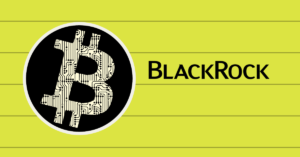Intro
There’s a lot of buzz around the possible approval of something called a Spot Bitcoin ETF. Sounds complicated, right? Well, it’s all about making it easier for big money players like institutions to join the world of cryptocurrency. Now, this ETF thing is different from other Bitcoin investments like Futures. The Spot Bitcoin ETF is seen as easier to understand and might attract more people to jump in. Futures, on the other hand, are seen as a bit more complicated and aren’t grabbing as much attention. Here’s the thing: some folks argue about whether Bitcoin is a real “thing” to invest in, like stocks or gold. But with this ETF, it’s like putting Bitcoin in a safe box. It’s regulated, secure, and avoids the headache of dealing with passwords or theft, which is something big investors love. Talking about rules and safety nets, there’s a lot of talk about agreements between different places where Bitcoin is traded. They want to make sure everything’s legit and no one’s trying to cheat the system.
1. Spot Bitcoin ETF and Institutional Access:
The discussion anticipates the approval of a Spot Bitcoin ETF, expecting it to broaden institutional participation in the crypto market.
Unlike traditional wire houses and wealth management platforms, which have limited access to Bitcoin products, a Spot Bitcoin ETF is seen as more user-friendly and aligns with existing infrastructure. This aspect is crucial in attracting institutions.
2. Differences Between Spot Bitcoin ETFs and Futures:
The conversation highlights the difference between Spot Bitcoin ETFs and Futures products. Spot ETFs are perceived as more straightforward and appealing due to their simplicity compared to Futures products, potentially driving wider adoption.
Futures products, while having their place in the market, are viewed as more complex and face hesitancy among investors due to their perceived intricacy.
3. Expected Impact on Bitcoin and Market Behavior:
Speculation centers on the impact of a Bitcoin ETF approval on the cryptocurrency itself. A significant run-up in Bitcoin’s price has been observed in anticipation of the ETF approval.
While some predict a sell-off following the approval, others believe institutional interest in this new asset class, coupled with Bitcoin’s role as a store of value, may sustain or even elevate its value.
4. Bitcoin as a New Asset Class and ETF Structure:
The conversation delves into the debate surrounding Bitcoin’s classification as an asset class. While some express skepticism about it being a “real” asset class, there’s a consensus that an ETF structure makes Bitcoin a safer investment.
The ETF structure offers regulated access, custodianship, and eliminates risks associated with personal ownership, such as losing passwords or theft, making it more attractive to institutional investors.
5. ETFs as Democratized Access to Bitcoin:
ETFs are considered a means of democratizing access to Bitcoin, providing easier access to individual investors and institutions alike.
A fee structure discussion emerges, with some ETF providers offering reduced or waived fees initially to encourage broader accessibility.
6. Regulatory Aspects and ETF Impact on Investment Portfolio:
The conversation touches upon the regulatory aspects, emphasizing the significance of surveillance sharing agreements between exchanges in ensuring compliance and mitigating fraudulent activities.
Bitcoin’s role in an investment portfolio is discussed, comparing it to traditional assets like gold, while acknowledging its potential as a store of value, albeit with ongoing debates regarding its classification.
summary
The discussion highlights the potential transformative impact of a Spot Bitcoin ETF approval on institutional participation, market behavior, regulatory frameworks, and the perception of Bitcoin as an investment asset. It also underscores the importance of ETFs in democratizing access and providing a regulated and secure pathway for investors to enter the cryptocurrency space.



